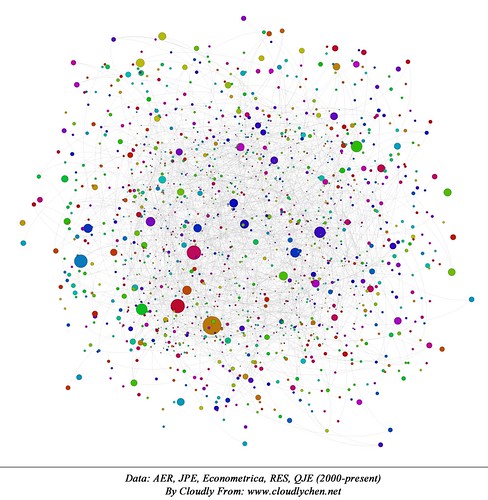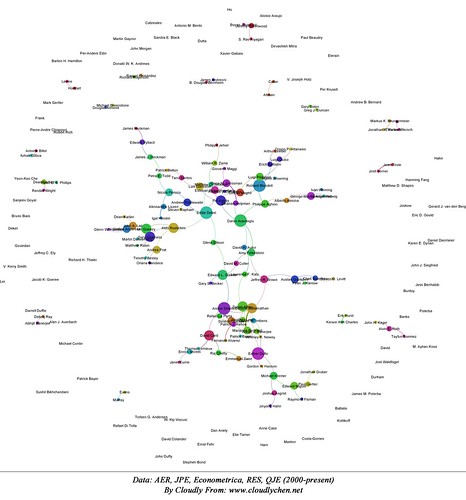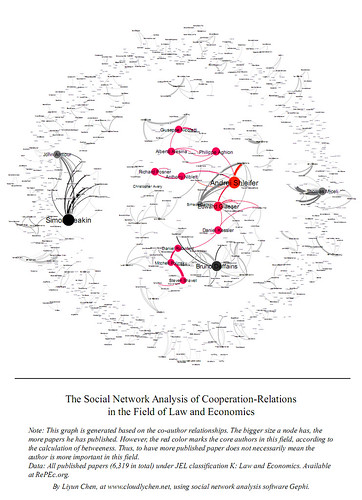Just finished a very interesting class. Thijs was talking about contraction map, which should be the forth time for me to see it in class (-_-!), but there was another "big guy", who was so good at math (perhaps due to the reason that he was from and had been taught in France) that he could not stand the assumption that some economists made for the applications here. Then, I got the honor to listen to their "debate". Haha...
Maybe there are only two kinds of economists in the current academia: those who are extremely good at mathematics, and those who have been granted wonderful intuitions by somebody (maybe the god? but they may refuse to acknowledge the existence of any god). Well, if you would like to count the union and complement of those two sets to be really strict, there must be the third and forth sets - in the forth set, let's simply define it as a collection of outliners who are talent at neither math nor economic intuitions, but succeed anyway from some perspectives…. I’m so sorry but the only people who can be categorized like that I can think of now, are those so-called "media mogul" and live on their speech instead of academic contributions. But let’s ignore them here to make the world simpler 🙂
As I just said, the student in class who asked those technical questions was very good and strict at math – actually that might be the way to define whether you are really good at math: apart from those mathematical intuitions, the level of strictness shown from the way you speak can tell people what kind of formal math trainings you have received. In contrast, I don’t really know how good Thijs is at math, but he usually prefers the way to explain things intuitively – and his intuition is amazing! I don’t think it is common to find a macro guy who has that kind of great sense, or the feeling of “touch”. Then, if you combine both together, you can expect what great talk will emerge!
But to be honest, when I was listening to their opinions, although the natural reaction at that time was to smile and enjoy the debate, after it, especially now, I’m feeling somewhat upset. Which one can be cultured? The ability of math? Sure, but how long will it take if you failed to start from the very beginning? Intuition? I have no idea whether people born with that talent or it depends on the way you learned economics. Sometimes I’m worrying about I’m standing at somewhere in the middle – not really good at math, and haven’t been granted the direct sense of the real economic world. Thus, is there still any possible way left for me to do some decent work in the world of economics? Maybe it was fortunate that my foresight was not too bad: at least, I named this blog as “explore the world of economics”. Whatever I have explored, they will not put any actual constraint on myself.




